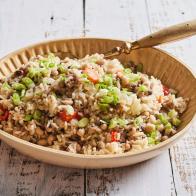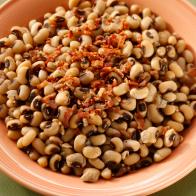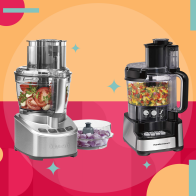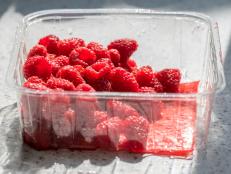4 Changes You Can Make to Eat More Sustainably
Here are more tips to eat with the planet in mind.

Space_Cat/Getty Images
Sustainability is on the minds of Americans striving for healthier lifestyles. At the recent Food and Nutrition Conference and Expo in Denver, Colorado, nutrition experts highlighted the ever-growing need for registered dietitians to disseminate reliable information about nutrition practices that can also benefit the environment. Here are a few ways that members of the food and nutrition community are promoting biodiversity and executing sustainable food practices that you can adopt for yourself.
The global food system needs to be more sustainable to quell the climate change crisis. Food production and agriculture contributes 25 to 35 percent of global greenhouse gas emissions, but small changes by individuals can still make a difference for the health of the planet.
According to data collected from Ketchum, an overwhelming majority of Gen Z says that sustainability is an important factor in their food choices, yet only 16-percent look for sustainably sourced ingredients in the foods they are purchasing. According to another report, more than 90 percent of the Baby Boomers surveyed said they were willing to make lifestyle changes if it means it will help protect the environment. If a more sustainable food system is on your wish list here are four ways you can make more mindful choices.

Enrique Díaz / 7cero/Getty Images
Learn to Flex
Flexitarianism is defined as a flexible eating style where plant-based foods are emphasized with less and/or smaller portions of meat. Eggs and dairy are also included and there are no strict guidelines to adhere to. The Flexitarian way of eating can provide the best of both worlds – a more varied diet and less strain on the planet. According to the Plant Forward Opportunity Report, 53 percent of the general population would consider a Flexitarian lifestyle.
Repurpose Food Waste
Feeding America reports that nearly 40 percent of all food in the U.S. goes to waste and while there is waste along the supply chain from farm to table, most of the waste takes place in the home. From turning vegetable scraps into broth to transforming bananas peels into “bacon,” social media has only helped spark creativity in this space.
There are lots of ways to give older food new life in your kitchen. Turning stale bread into croutons and breadcrumbs, blending wilting herbs into freezable sauces and combining scraps of cheese for an epic batch of macaroni and cheese are just some of the things you can do with ingredients that are likely wasting away in your fridge.
Choose More Sustainable Packaging
The goal is to purchase and eat mostly unpackaged, whole foods, but let’s be honest – we all rely on packaged options when on the go and pressed for time, especially with plenty of packaged nutrient-dense options to choose from. However, when possible, you can cut down on waste by buying in bulk and choosing brands with Climate Neutral Certification or affiliations with organizations such as the Rainforest Alliance.
Get Some Sustainable Diet Inspiration
If you’re ready to make your diet more sustainable, there are several avenues to explore. In 2021, the United Nations Food Systems Summit identified beans and eggs as “star” ingredients because they are nutritious, versatile, affordable and eco-friendly. In 2023, World Food Day centered around water conservation and its impact on agriculture. Suggestions for following a water-friendly diet include eating in-season fruits and vegetables and choosing foods like nuts and pulses that require less water to produce. Books like The Flexitarian Diet and Zero Waste Cooking for Dummies can provide simple strategies anyone can try to help promote personal and global health.
Related Content:
































